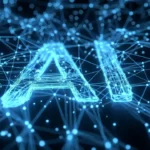Artificial Intelligence (AI) is revolutionizing various sectors, driving innovation, and transforming our lives and work. From healthcare to finance, transportation to entertainment, Artificial Intelligence technologies are reshaping industries, enhancing efficiency, and unlocking new possibilities. This article explores AI’s evolution, applications, and prospects, highlighting its profound impact on society and the economy.
Understanding Artificial Intelligence
Artificial Intelligence is the simulation of human intelligence in machines programmed to think, learn, and perform tasks autonomously. AI encompasses various technologies, including machine learning, natural language processing, computer vision, and robotics.
Historical Evolution
The concept of AI dates back to ancient history, with myths and stories about artificial beings endowed with intelligence. The formal development of AI began in the mid-20th century, marked by Alan Turing’s pioneering work and the Dartmouth Conference in 1956, which is considered the birth of AI as a scientific discipline. Since then, AI has evolved through several phases, from rule-based systems to machine learning and deep learning, driven by advancements in computing power, data availability, and algorithmic innovations.
Core Components
AI systems typically consist of several key components:
- Machine Learning (ML): A subset of AI that involves training algorithms to learn from and make predictions based on data.
- Natural Language Processing (NLP): The ability of AI to understand, interpret, and generate human language.
- Computer Vision: The capability of AI to analyze and interpret visual information from the world.
- Robotics: Integrating AI with physical machines to perform tasks autonomously or semi-autonomously.
Applications and Impacts of Artificial Intelligence
Artificial Intelligence has a wide range of applications across various industries, driving innovation and improving efficiency:
Healthcare
AI is transforming healthcare by enabling more accurate diagnostics, personalized treatments, and efficient healthcare delivery. Machine learning algorithms analyze medical images to detect diseases, while NLP systems assist in medical record management. AI-driven drug discovery accelerates the growth of new treatments, and robotic surgery enhances precision and reduces recovery times.
Finance
Artificial Intelligence enhances fraud detection, risk management, and customer service in the finance sector. Machine learning models analyze transaction patterns to identify fraudulent activities, while robo-advisors provide personalized investment advice. AI-driven trading algorithms optimize portfolio management and improve market predictions.
Transportation
AI is at the forefront of transforming transportation through autonomous vehicles, smart traffic management, and predictive maintenance. Self-driving cars and trucks leverage computer vision and ML to navigate and make real-time decisions. AI-based traffic management systems optimize traffic flow and reduce congestion, while predictive maintenance minimizes downtime and enhances safety.
Entertainment
AI is revolutionizing the entertainment industry by enabling personalized content recommendations, enhancing creative processes, and developing interactive experiences. Streaming platforms use AI algorithms to suggest movies and shows based on user preferences. AI-generated music and art explore new frontiers of creativity, and virtual assistants like chatbots enhance user engagement.
Benefits of Artificial Intelligence
AI offers numerous benefits that enhance various aspects of life and business:
Increased Efficiency
AI automates repetitive tasks, allowing humans to focus on higher-value activities. In manufacturing, AI-driven automation enhances production efficiency and reduces errors. Chatbots provide quick and accurate responses in customer service, improving customer satisfaction and operational efficiency.
Improved Decision-Making
AI systems analyze vast data to provide actionable insights and support decision-making. In healthcare, AI assists doctors in diagnosing diseases and recommending treatments. In business, AI-driven analytics help companies identify market trends and optimize strategies.
Enhanced Personalization
AI enables personalized experiences by analyzing user preferences and behaviors. In retail, AI-powered recommendation engines suggest products tailored to individual customers. In education, AI-driven platforms provide personalized learning paths and adaptive assessments.
Challenges and Future Directions
Despite its potential, AI faces several challenges that need to be addressed for its responsible and sustainable development:
Ethical and Social Implications
AI raises ethical and social concerns, including bias, privacy, and job displacement. Biased algorithms can perpetuate discrimination, while AI’s ability to analyze personal data poses privacy risks. Automating jobs raises concerns about workforce displacement and the need for reskilling.
Transparency and Accountability
Ensuring transparency and accountability in Artificial Intelligence systems is crucial for building trust. Black-box algorithms, where the decision-making process is not transparent, can lead to unintended consequences. Developing explainable AI and establishing clear accountability frameworks are essential for addressing these issues.
Regulatory and Legal Frameworks
The rapid advancement of AI requires robust regulatory and legal frameworks to ensure its safe and ethical deployment. Policymakers need to balance innovation with safeguards that protect individuals and society. International collaboration is essential for developing consistent standards and addressing global challenges.
Technological Advancements
Continued research and development in AI technologies are necessary to overcome limitations and unlock new possibilities. Advancements in quantum computing, for example, hold the potential to enhance AI capabilities significantly. Collaborative efforts between academia, industry, and governments are vital for driving innovation.
Conclusion
Artificial Intelligence is a transformative force that reshapes industries, drives innovation, and enhances quality of life. As AI continues to evolve, it offers immense potential for addressing complex challenges and creating new opportunities. However, realizing the benefits of AI requires addressing ethical, social, and regulatory challenges and ensuring that principles of fairness, transparency, and accountability guide its development and deployment. By embracing AI responsibly, we can harness its power to build a better, more equitable, and sustainable future.





